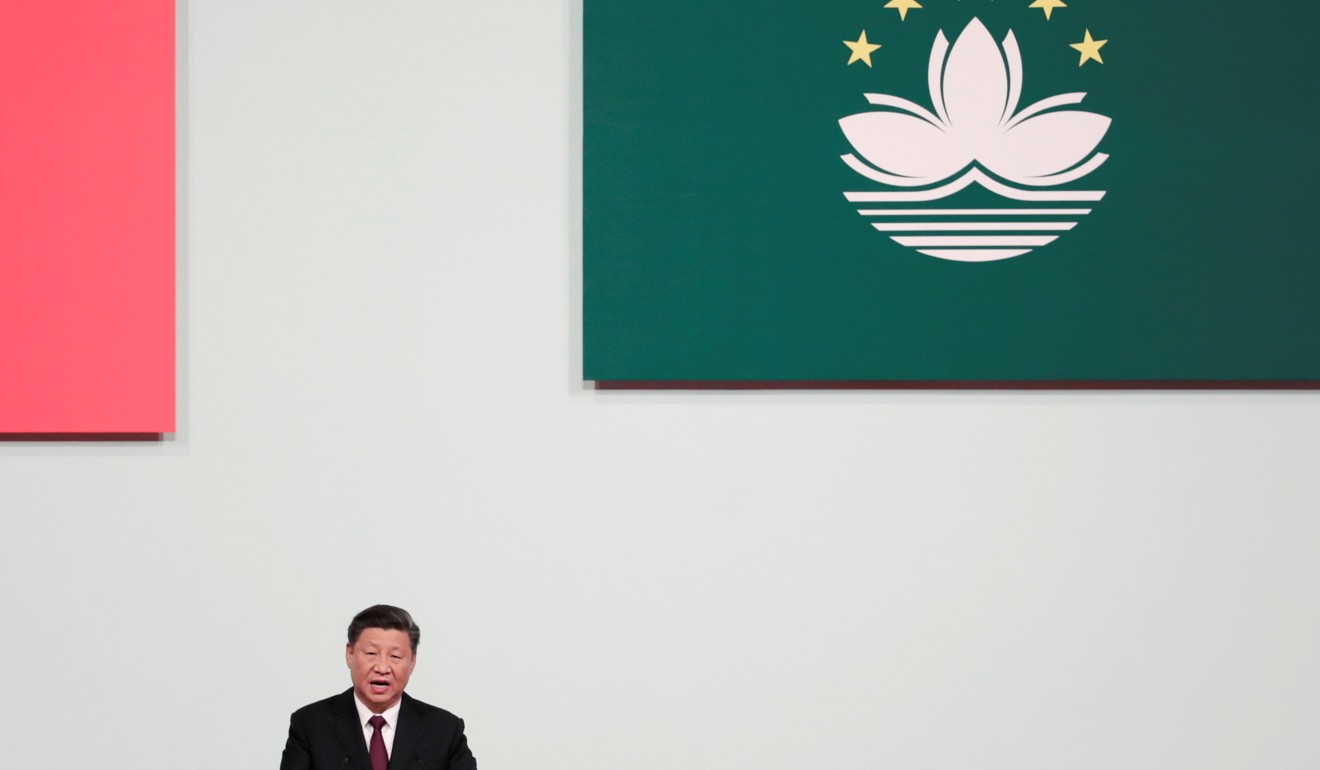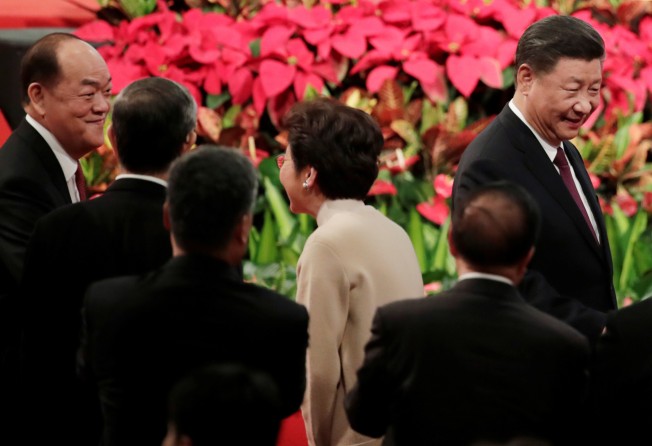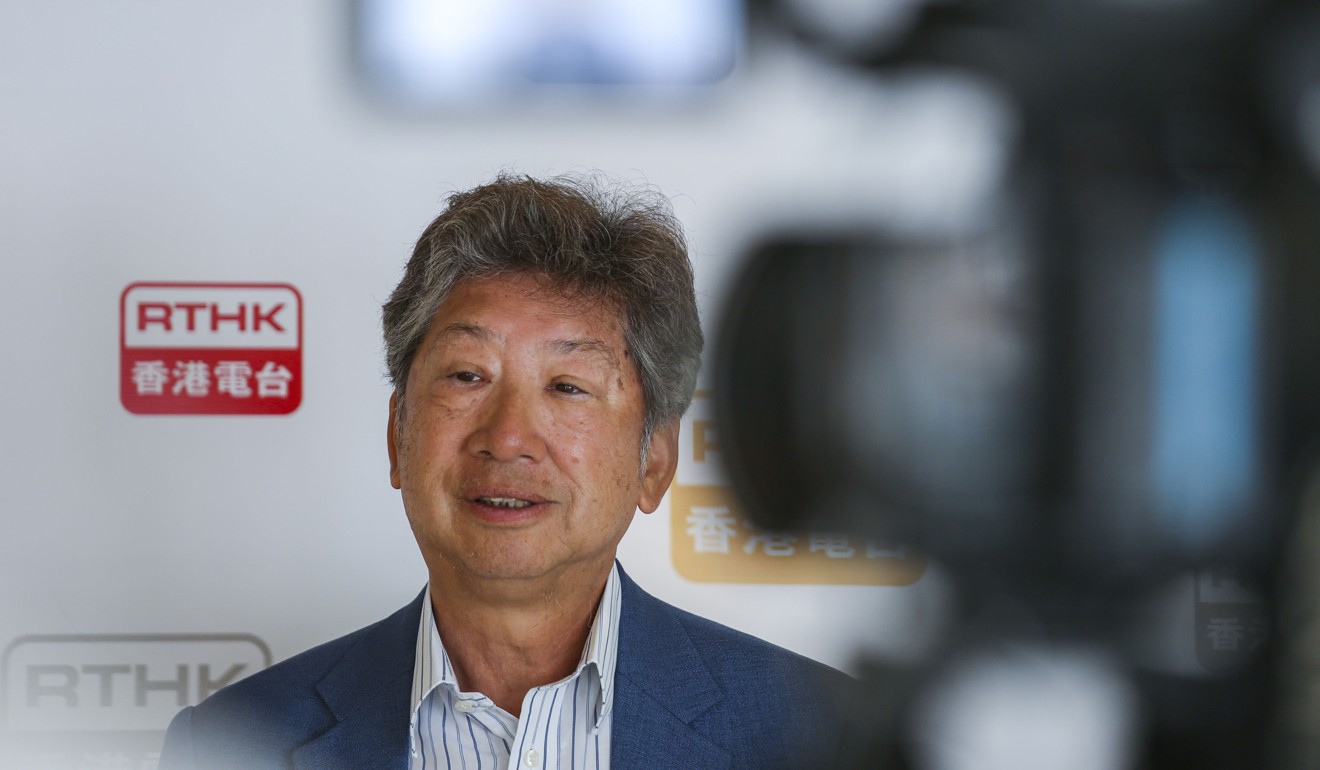
After Xi Jinping’s Macau trip, analysts predict patriotic education and national security in Hong Kong’s future
- State leaders insist Macau has set benchmark for successful implementation of ‘one country, two systems’
- President’s speeches show central government is not happy with Hong Kong

State leaders are adamant that Macau has set the benchmark for successful implementation of “one country, two systems” and expect Hong Kong to do more to promote patriotic education and safeguard national security, analysts say.
Political commentator Johnny Lau Yui-siu said Chinese President Xi Jinping’s speeches during his three-day visit to Macau, which ended on Friday, indicated that the central government was not satisfied with Hong Kong’s failure to match Macau in areas such as the operation of an executive-led political system, and respect for the central government’s authority.
Delivering his speech at a banquet in Macau on Thursday, Xi praised the city’s people for understanding that the executive authorities and the legislature should support each other, while also acting as a check and balance, but of the two mutual support was most important.
Speaking at the city government’s inauguration ceremony after overseeing the swearing-in of Chief Executive Ho Iat-seng on Friday, Xi said the executive authorities, the legislature and the judiciary “correctly handled their relationship” to ensure the respect for the chief executives' authority, and the smooth operation of the executive-led political system.

Lau said Xi had a long-held belief that the three branches of the government in Hong Kong should work together.
During his visit to Hong Kong as vice-president in July 2008, Xi called for “mutual understanding and support among the executive authorities, the legislature and the judiciary” to maintain Hong Kong’s stability and prosperity.
“By citing the collaboration between executive authorities and the legislature in Macau, Xi was actually scolding Hong Kong subtly by ostensibly pointing to Macau,” Lau said.
The central government doesn’t demand Hongkongers love the Communist Party. It just hopes Hong Kong people not to do anything that would threaten national security
Lau said he expected Hong Kong’s government to step up patriotic education in local schools in the years ahead.
“In recent years, many Hong Kong deputies to the National People’s Congress gave lectures in local schools. We can expect more of such arrangements in the future,” he said.
Xi was the second state leader this month who praised Macau for successfully implementing the “one country, two systems” principle, which applies to the two special administrative regions.
Speaking at an event in Beijing on December 3 to mark the 20th anniversary of Macau’s Basic Law, National People’s Congress chairman Li Zhanshu described the city as a role model for implementing one country, two systems, and called on Hong Kong to learn from the casino hub.
Li said the central government had the same demands for both Hong Kong and Macau.
Macau introduced its own national security law 10 years ago to implement Article 23 of its Basic Law, and set up a national security commission last year.
The Hong Kong government, on the other hand, backed down from putting Article 23 of the city’s Basic Law in place after 500,000 people took to the streets to protest against it on July 1, 2003.
Tian Feilong, an associate professor at Beihang University’s law school in Beijing, said Macau had attached great importance to safeguarding national security, while Hong Kong had not done enough in this aspect.
“President Xi’s speech can be seen as a reminder for Hong Kong to do a better job,” Tian said.
“If Hong Kong does not take into account the need to safeguard national security but only cares about two systems, the implementation of one country, two systems in Hong Kong will be distorted,” the mainland academic said.
Tian said while Hong Kong had yet to enact laws to implement Article 23 of the Basic Law, the Hong Kong government and the city’s courts should try their best to safeguard national security.
Speaking at the Macau government’s inauguration ceremony, Xi warned against any foreign interference there or in Hong Kong, saying it would not be tolerated.
Lau Siu-kai, vice-chairman of the semi-official think tank, the Chinese Association of Hong Kong and Macau Studies, said Xi’s key message in his speech on Friday was to rebut the suggestion from some quarters that one country, two systems had failed, in the wake of the anti-government protests.
“The central government is confident that Macau has set an example for successful implementation of the one country, two systems,” Lau Siu-kai said. “Although Hong Kong has been rocked by protests for more than six months, Beijing still believes Hong Kong can reboot itself by drawing from Macau’s experience.”
Executive councillor Ronny Tong Ka-wah agreed Xi’s speeches over the past few days were an indication of the central government identifying the inadequacies in the governance of Hong Kong.

“We’re painfully aware of the shortcomings of the implementation of one country, two systems in Hong Kong,” he said. “But the situation in Hong Kong is quite different from Macau. We hope President Xi understands the reality of that.
“The government’s attempt to enact the extradition bill has already caused a big fuss in recent months. Hong Kong could be turned upside down if the government tries to revive the national security legislation.”
But Lau Siu-kai believed Beijing only set a minimal requirement for Hong Kong in implementing one country, two systems.
“The central government doesn’t demand Hongkongers love the Communist Party,” he said. “It just hopes Hong Kong people don’t do anything that would threaten national security.”